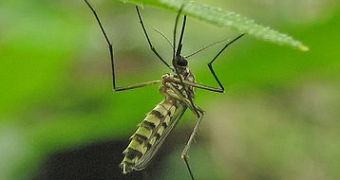Prophylactic treatment with safe, affordable antibiotics in people that live in areas with moderate to high malaria transmission, triggers a memory immune response inside the body that recognizes and destroys future malaria infections when antibiotics are no longer administrated.
A new study carried out by an international team of researchers from the London School of Tropical Medicine and Hygiene (LSHTM), Heidelberg University School of Medicine, the Max Planck Institute for Infection Biology, Germany, and the KEMRI-Wellcome Trust Research Programme, Kenya, advances this theory and sustains that this could be the “needle-free” natural vaccine against the disease, that will also provide a way of controlling and eliminating it from the resource-poor areas.
This experiment showed that the antibiotics altered cells of the malaria parasites during their passage into the liver of the infected individual and even though parasites continued to replicate, this blocked the blood stage that causes the fatal disease.
Statistics say that almost half of the globe's population is at risk of malaria and every year, near one million people, mostly children in sub-Saharan Africa, die from the mosquito-borne parasitic illness.
The disease is transmitted by the infected Anopheles mosquito through some 10 to 100 parasites that infect the liver and replicate into tens of thousands, that are resealed into the blood stream a week later and cause fewer and other deadly complications.
It is already known that antibiotics in combination with other anti-malarial drugs are affordable and safe in fighting the acute malaria infection and the entire idea of this research is to use this preventative treatment in areas where people are constantly exposed to malaria infections caused by mosquito transmission.
Dr Steffen Borrman co-author on the paper explains that “this proof-of-principle study attempts to bridge a gap between basic malaria research and a rapid translation to a potential application in malaria-endemic countries.
“An important follow-up of this work is the validation of our experimental approach by clinical trials in humans [and] if successful, periodic administration of antibiotics, preferably in drug combinations, in high-risk population groups, particularly young, non-immune children, may provide an additional valuable tool for controlling and/or eliminating malaria in resource-poor settings.”
This research is published in the journal Science Translational Medicine.

 14 DAY TRIAL //
14 DAY TRIAL //